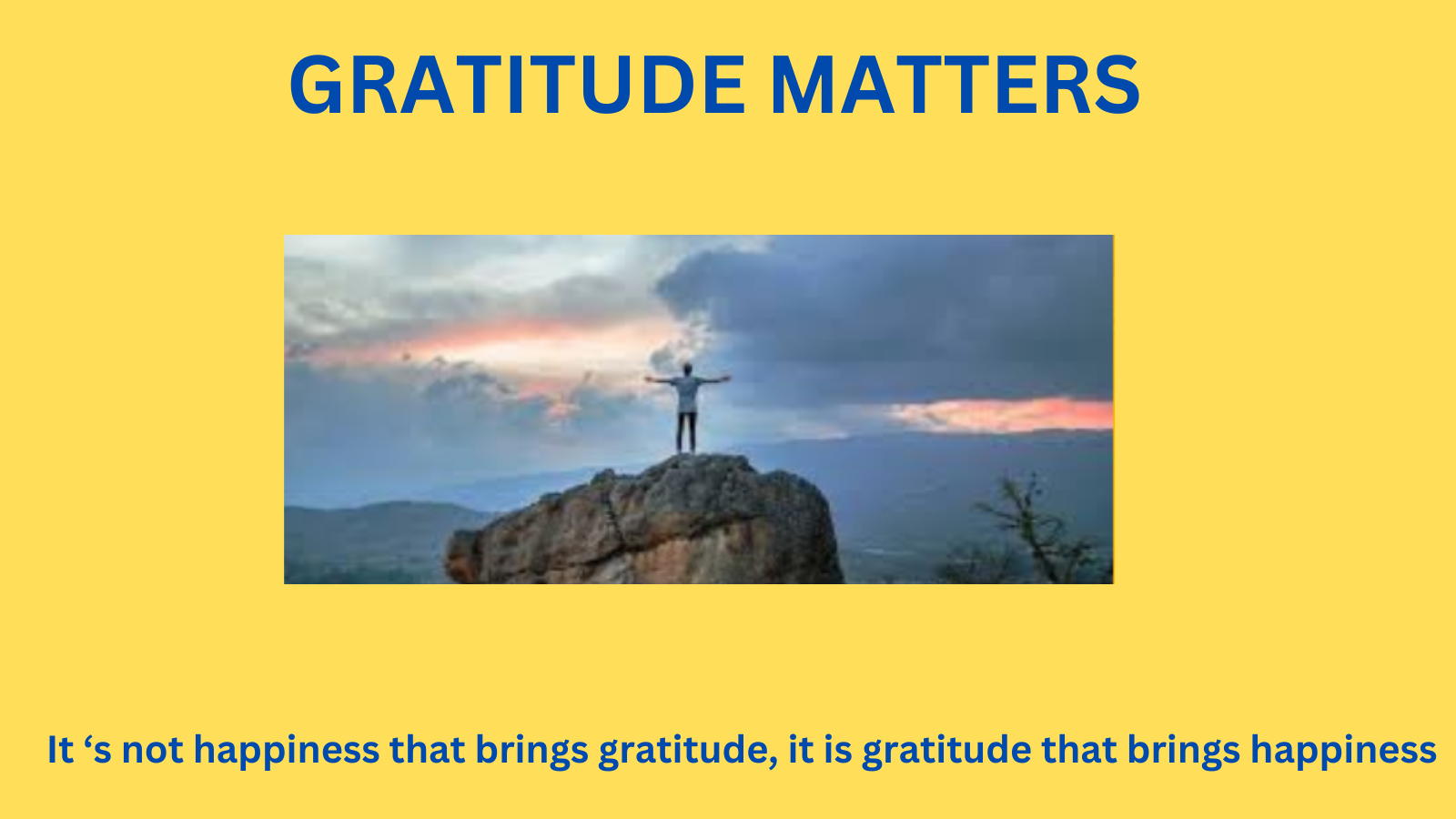Gratitude is the quality of being thankful. It results in being willing and ready to show appreciation for and to return kindness. It brings a warm feeling of thankfulness towards the world or specific individuals. The person who feels gratitude is thankful for what they have received and does not constantly seek more.
Gratitude helps people feel more positive emotions, feel more alive, express more compassion, relish good experiences, improve their health, deal with adversity, and build strong relationships.
We will still have negative thoughts, but gratitude will help balance them out. “Gratitude is an emotion that grounds us and is a great way to balance out the negative mindset that uncertainty engenders,” said Dr. Guy Winch, author of the book Emotional First Aid.
The process of feeling grateful compels us to reflect on our relationships. It makes us feel closer and more connected to others, which helps motivate and sustain our efforts at self-improvement. We won’t be able to maintain our efforts for self-improvement without the help of others, and we will fail when we have the wrong motivation. When we're motivated by negative emotions, it is nearly impossible to sustain efforts to change. Is gratitude a soft skill?
Ask a person who is not grateful for the good things in their life, and you will find an unhappy person, but if you teach yourself or that person to understand and learn gratitude, it will become a life-changing soft skill.
“Gratitude turns what we have into enough.” – Anonymous.


